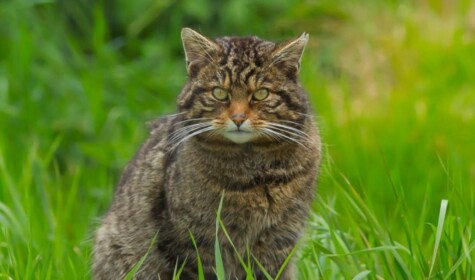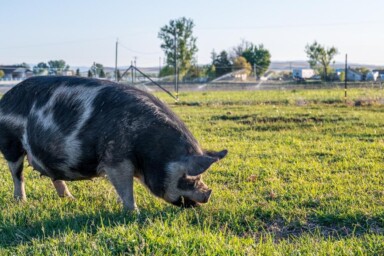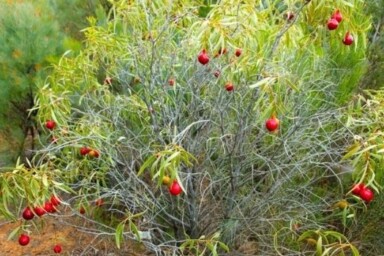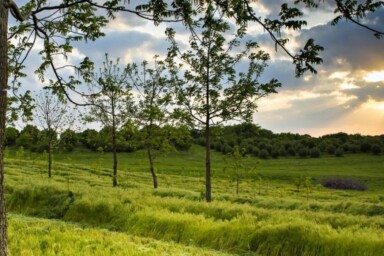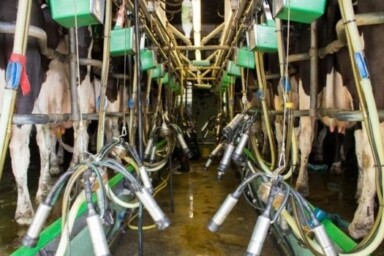I recently came across a Facebook group called, ‘Rewild Chew garden by garden’. A catchy title, I thought, but surely they can’t mean actual rewilding, as in the reintroduction of apex predators and a complete abandonment of the decking and lawn? On further investigation, I discovered the group were not, in fact, aiming for rewilding in the true sense of the word but something more akin to what we used to call ‘nature gardening’ – a gentle inclusion of hedgehogs and wildlife ponds.
I apologise for sounding facetious, but the term ‘rewilding’ is bandied about with tedious regularity these days and frequently in inappropriate ways. Everyone, it seems, has their ‘rewilding’ patch in their otherwise carefully manicured garden and, while it could be considered commendable to some extent, it is not, in my opinion, as useful as attempting to manage their whole garden in harmony with nature, as well as producing as much of their own food as possible, rather than having it delivered by Waitrose.
When you scale this up to farm-size rewilding projects, it usually elicits (along with tongue-in-cheek references to uncut thistles) a knee jerk response from farmers, that is both scathing and defensive. A re-posting on Facebook by North Wales farmer, Gareth Wyn Jones, for instance, of a Guardian article entitled, ‘The millionaire rewilding the countryside one farm at a time’, received hundreds of comments, very few of them supportive of said millionaire. Certain comments stand out and eloquently highlight what many people in farming communities feel:
‘Let’s import our food from Australia and Brazil…! What would our ancestors who worked so hard on these farms think?’
‘They need to rewild all the cities. Each high-rise rooftop needs a green space on it. That will be a start.’
‘I find it shocking that the media holds these up as such beacons of hope and somehow ignore that these projects only happen because their founders are incredibly wealthy and don’t have to worry, as every farmer does, every single day about simply making a living from their land. It would appear that food security, the rural economy, heritage and history are not worth bothering ourselves with in the mad rush for solutions.’
‘I think that the polarity us versus them, farmers bad, activist millionaires good, has to stop. It’s not helpful and it doesn’t support farmers doing their best to produce food and work with nature to increase biodiversity and sequester carbon.’
‘Rewilding’ is an emotive word and appeals to both a primitive need and a primitive fear within us. It implies a seriousness and urgency that ‘gardening’ or “nature friendly farming’ does not. (And that is not intended as an insult to the Nature Friendly Farming Network that is working hard to restore biodiversity on farms, and of which I am a member.)
But what does it actually mean and what are the implications for food production in the UK? The Oxford dictionary defines ‘rewilding’ as, ‘the practice of helping large areas of land return to their natural state’, with the Cambridge dictionary adding that it is ‘used especially with reference to the reintroduction of species of wild animal that have been driven out or exterminated’.
On reading these definitions, two questions spring immediately to mind: how is it decided (and who decides) what any given area’s ‘natural state’ was, is or should be? And, why is it assumed that land needs to be taken out of cultivation for missing animals to be reintroduced to it?
On the first of these questions, Isabella Tree explains in detail, in her book, ‘Wilding’, the struggle that the Knepp Project Advisory Group had with the concept of rewilding. ‘Could we really describe what we were doing on a relatively small area of post-agricultural land sandwiched between the creeping conurbations of Horsham and Worthing, under the Gatwick stacking system, criss-crossed by roads and with no apex predators as genuinely wild?’ She further explains ‘that the stubborn little prefix ‘re-‘ reveals a naïve ambition to recover the past’. Hence, the title of both her book and the Knepp Estate’s ecological restoration project.
I believe the notion of ‘the wild’ as an entity separate to humanity is fundamentally flawed. We all know that life on this planet is totally dependent on its complex ecosystems and yet we continue to act as if the increasingly urgent need to protect those ecosystems from our own destructive ways of living, is somehow something apart from our daily lives.
Urbanisation, industrialisation and consumerism is responsible for the disengagement from nature of much of the world’s population. However, there is an irony in the modern urban mindset of a conservation movement that believes nature needs to be set aside to be ‘wild’ and admired from afar. If we are encouraged to be tourists in nature, we will fail to understand that protecting it is the responsibility of all.
Industrialisation is not something that only happens in an urban setting. The industrialisation of our food and farming has simultaneously led to the destruction of much of our farmland wildlife and the distancing of most people from the sources of their food.
I believe ‘the wild’ needs to be brought back into everybody’s lives. Not as something we visit occasionally and need a PhD to understand, but as an integral part of our day-to-day existence.
And what of farming? Like many of the commentators on that Guardian article, I fail to understand why a millionaire entrepreneur ‘returning swathes of the British farmland to wilderness’ is a cause for celebration. As commented earlier, the ‘us versus them…has to stop’. Ultimately, we all have to eat and, (laboratory-produced ‘food’ aside), the source of our sustenance is the land. Are we seriously suggesting that it is in the interest of the planet to import our food whilst ‘returning’ our own farmland to a pseudo ‘wilderness’ state? And why is it always farmland in these either / or scenarios? Do we value our food production (and food producers) less than golf courses, shopping malls, industrial estates? How about ‘rewilding the countryside’ one business park at a time?!
I recently had the pleasure of spending a couple of days at Rewilding Coombshead, a farm and nature reserve in Devon. Its owner, Derek Gow, is a well-seasoned livestock farmer and expert in the reintroduction programmes of keystone species such as the beaver. He is better placed than many to understand the benefits and difficulties of rewilding our landscape – not in a hands-off, set aside sort of way, but all our landscape, from those places with the least human habitation to the centre of our cities. He sees no reason why beavers should not return to all our watercourses, increasing ‘desperately depleted nature in every way possible in great wealth and abundance’. In his book, Bringing Back the Beaver, Gow argues very persuasively that ‘we must have them back once again everywhere they can be.’
Another of Coombeshead’s reintroduction programmes is of the native wildcat, that has been reduced to such a tiny population in the far north of Scotland that it is often referred to as the ‘Scottish’ wildcat. This animal, we are told on a very informative tour of the breeding pens, was once widespread throughout Britain and, in fact, prefers lowland and non-intensive farmland to the cold, wet uplands of Scotland. The hybridisation with domestic cats that has speeded its decline is the result of it being present in insufficient numbers to maintain its true form.
It is well past time for us to all work together on this. Farmers need to recognise that they might have to farm around beavers, that are essential for flood mitigation and the health of our waterways. We will have to be prepared to make other changes too, such as reducing stocking densities, particularly on the hills, and in some cases removing livestock temporarily or permanently altogether. Many farmers are already engaging with this, but the media would prefer to report on the large vanity projects of the super-rich than the small invisible producers of our food. Government, conservation bodies and the general public also need to understand that they will have to change too. However unsustainable farming may have become, it is more easily remedied than the relentless concrete sprawl of an ill-conceived ‘build, build, build’ mentality. While the finger of accusation is pointed at farming, small family farms, allotments and market gardens continue to disappear under housing developments, business parks and carbon offsetting tree plantations with barely a mention or a thought.
Perhaps it is time for a new, more inclusive, definition of ‘wilding’. Then maybe, with wildcats as well as hedgehogs at the bottoms of their gardens, ‘Wilding Chew’ could justify its title after all.
Photograph: Karen Bullock
